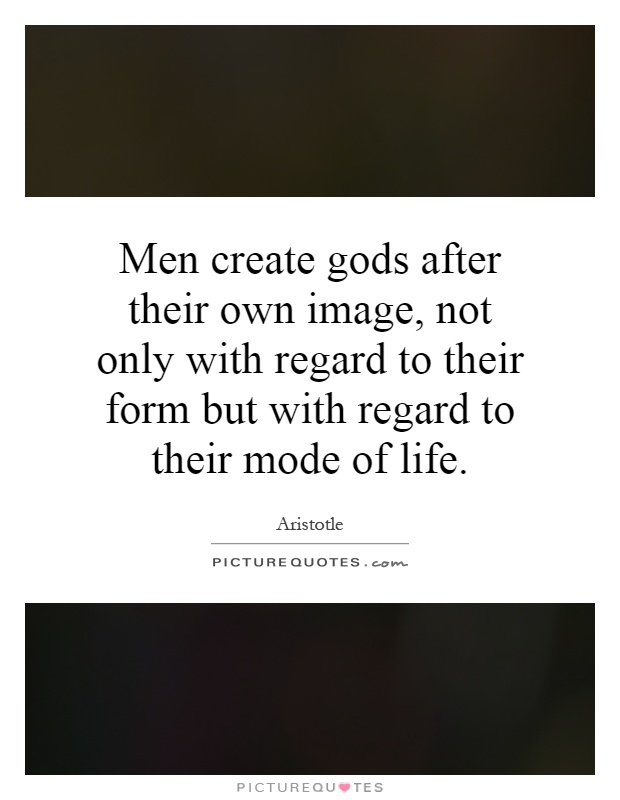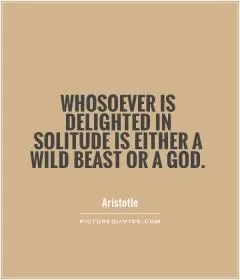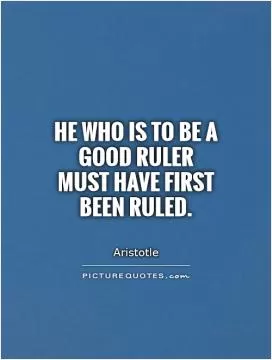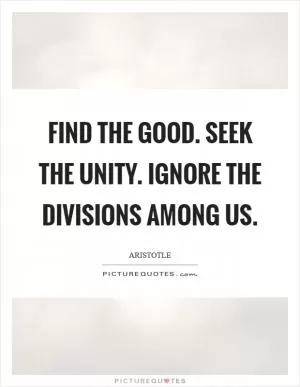Men create gods after their own image, not only with regard to their form but with regard to their mode of life

Men create gods after their own image, not only with regard to their form but with regard to their mode of life
In the context of Aristotle's philosophy, the statement "Men create gods after their own image, not only with regard to their form but with regard to their mode of life" holds significant implications. Aristotle, a renowned Greek philosopher, believed in the existence of a higher power or divine being, but he also recognized the human tendency to anthropomorphize gods based on their own characteristics and behaviors.Aristotle's concept of the divine was rooted in his belief in a prime mover or unmoved mover, a transcendent being that set the universe in motion and governed all things with purpose and order. This prime mover was not a personal deity in the traditional sense, but rather an abstract and impersonal force that guided the natural world towards its ultimate end. However, Aristotle understood that humans often projected their own desires, fears, and values onto their conception of gods, shaping them in their own image.
The idea that men create gods after their own image reflects Aristotle's understanding of human nature and psychology. Humans have a tendency to anthropomorphize the divine, attributing human-like qualities and characteristics to gods in order to make them more relatable and understandable. This anthropomorphism can be seen in the myths and stories of ancient religions, where gods are depicted as having human emotions, desires, and flaws.
Furthermore, Aristotle believed that people often projected their own moral values and beliefs onto their gods, shaping them according to their own mode of life. For example, a society that values courage and strength may worship a god of war, while a culture that values wisdom and knowledge may venerate a god of wisdom. In this way, gods become reflections of human ideals and virtues, serving as moral guides and sources of inspiration for believers.
Overall, Aristotle's insight into the human tendency to create gods in their own image highlights the complex relationship between religion, culture, and psychology. By recognizing the ways in which humans shape their conception of the divine according to their own characteristics and values, we can gain a deeper understanding of the role that religion plays in shaping individual and collective identity.












 Friendship Quotes
Friendship Quotes Love Quotes
Love Quotes Life Quotes
Life Quotes Funny Quotes
Funny Quotes Motivational Quotes
Motivational Quotes Inspirational Quotes
Inspirational Quotes